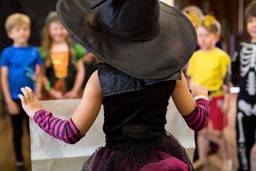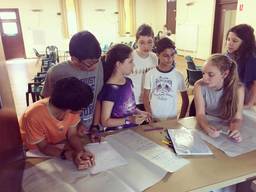What age do Public speaking classes for kids start ?
 Public Speaking
Public Speaking
The Foundation Stage: When to Begin Public Speaking Classes
The journey into public speaking can start earlier than many might think. While the structured environment of public speaking classes might be more suitable for children aged 7 and above, the foundational skills can be nurtured much earlier. From as young as 3 to 4 years old, children begin to form complex sentences and understand the basics of conversation. This period, ripe with curiosity and rapid learning, is an ideal time to introduce activities that boost communication skills in a playful, engaging manner.
Public speaking and drama activities tailored for younger children often focus on storytelling, expressive reading, and simple presentations that encourage them to stand and speak in front of small groups. These early experiences lay the groundwork for effective communication by gradually building their confidence in expressing themselves and listening to others.
Nurturing Skills Through Educational School Holiday Activities
School holidays present a unique opportunity to engage children in educational activities that also serve as a fun break from the regular school routine. Public speaking workshops or drama camps designed as educational school holiday activities can be a fantastic way to immerse kids in a focused learning experience. These programs are often crafted to make learning enjoyable, incorporating games, group activities, and individual speaking tasks that cater to varying ages and skill levels.
For children aged 5 to 8, holiday programs can introduce them to the joy of public speaking through storytelling, puppetry, and simple dramatic expressions. As they grow older, more structured public speaking and drama workshops can help refine their skills, teaching them about voice modulation, body language, and the art of persuasion. These activities not only enhance their speaking abilities but also their ability to work as part of a team, think critically, and engage creatively with content.
By the age of 7 to 9, children are typically ready to benefit fully from structured public speaking classes. This readiness is marked by their ability to follow complex instructions, engage in deeper levels of thinking, and exhibit a greater sense of independence. Classes designed for this age group and beyond can tackle more advanced public speaking techniques, such as crafting speeches, utilizing effective presentation aids, and engaging with diverse audiences.
It's important for parents and carers to choose public speaking programs that align with their child's interest and temperament. Some kids might thrive in a competitive environment, while others may prefer a more collaborative, supportive setting. The goal is to foster a love for communication, not to overwhelm them with pressure or expectations.
Parents and carers play a crucial role in their child's public speaking journey. Encouraging regular practice at home, whether through dinner table debates or family storytelling sessions, can reinforce the skills learned in classes or workshops. Offering constructive feedback, celebrating progress, and continually nurturing a supportive environment are key to helping children overcome the fear of public speaking and develop a confident, articulate voice.
It's also beneficial to expose children to public speaking opportunities outside of formal classes, such as community events, school assemblies, or even creating content for a family YouTube channel. These real-world applications of their skills can be incredibly empowering and motivating.
Public speaking is a skill that can significantly impact a child's academic, professional, and personal life. Starting public speaking classes at the right age maximizes the benefits for children, embedding confidence and communication skills that last a lifetime. Whether through playful introductions in the early years, educational holiday activities, or structured classes as they grow, each step is valuable in nurturing articulate, confident speakers.
For parents and carers in Australia looking to enrich their children's lives with public speaking, drama, and educational activities, the journey begins with recognizing and fostering their child's readiness to learn and express. By providing opportunities that align with their developmental stage and interests, we can unlock their potential and set them on a path to becoming effective communicators and leaders of tomorrow.
Quick Links
- Public speaking classes & lessons in Australia
- Public speaking classes & lessons in Adelaide
- Public speaking classes & lessons in Brisbane
- Public speaking classes & lessons in Inner North
- Public speaking classes & lessons in Hobart & South East
- Public speaking classes & lessons in Melbourne
- Public speaking classes & lessons in Darwin
- Public speaking classes & lessons in Sydney
- Public speaking classes & lessons in Perth

